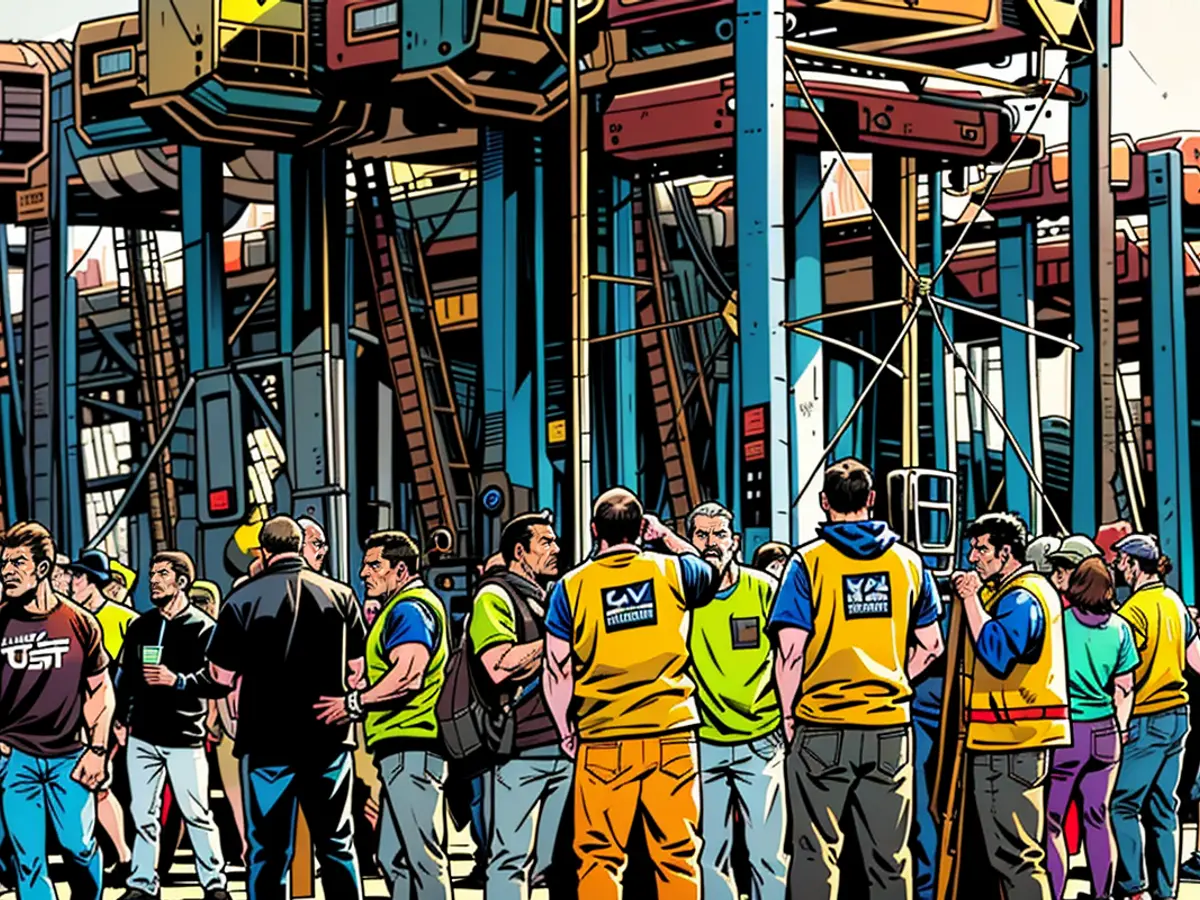tariff negotiations - New offer in tariff conflict at seaports
Tariff Conflict over the remuneration of port workers at the Central Association of German Seaport Companies (ZDS) has presented an offer. It includes two options with different durations, each with a significant real wage increase, the association announced on Saturday. The union Verdi intends to present this offer to its members for a vote.
For two days, ZDS and Verdi had been arguing in Bremen over the payment for the approximately 11,000 employees in Hamburg, Bremen, and Lower Saxony. This was already the fourth round of negotiations in this tariff dispute.
This tariff dispute had been accompanied by several warning strikes. Hundreds of employees had laid down their work in the ports of Hamburg, Bremerhaven, Bremen, Wilhelmshaven, Emden, and Brake for several days.
Employers propose two offers
According to the union, ZDS is offering an inflation adjustment of €1,000 and an hourly wage increase from January of 0.95 Euro - with a duration of twelve months. Alternatively, the union could present a duration of sixteen months and an inflation adjustment of €1,400 and an hourly wage increase of 1.55 Euro. In both cases, employees would also receive higher shift allowances and €480 more vacation pay.
"ZDS has again raised its fair offer from the previous negotiations," the association announced after the latest negotiations, without providing details. "The offer is at the limit of affordability and poses significant economic challenges for the seaport companies."
Decision to be made at the end of August
The offer falls short of expectations, Verdi stated. The union is demanding a retroactive wage increase of €3 per hour for the employees, as well as a corresponding increase in shift allowances, from June 1. The duration of the collective agreement should be twelve months.
Some demands, such as the increase in shift allowances, have been taken up by ZDS, the union announced. Members are now supposed to form their own opinion and vote on the offer. Subsequently, the Federal Wage Commission will decide on its further course at its meeting on August 22 and 23.
ZDS is hoping for an agreement. "We are confident that we have found a long-term solution with the final offer and thus restored trust in the reliability of our ports," Torben Seebold, negotiator for the ZDS, stated.
- The tariff conflict also affects port operations in Wilhelmshaven, a significant harbor in Lower Saxony.
- If the compensation offer from the Central Association of German Seaports ZDS is not accepted, a strike could potentially disrupt shipping activities.
- The United Services Trade Union, representing employees in the transportation sector, has voiced concerns about the proposed tariffs.
- Bremerhaven, another major harbor in Germany, has also been affected by the rate dispute and the consecutive warning strikes.
- The employer and the trade union will continue negotiating tariff issues, aiming to avoid a full-fledged strike that could impact the country's transportation and shipping infrastructure.
- Local authorities in Bremen and other cities along the German coast have been closely monitoring the tariff conflict and its potential impact on harbor operations.
- In case of an agreement, the new tariffs would apply to all employees in the Central Association of German Seaport Companies, from Hamburg to Bremen and further down to Wilhelmshaven.
- The shipping industry has been closely following the tariff conflict, as any resulting disruptions could have consequences for the national and international shipping markets.
- The tariff conflict has highlighted the need for balanced negotiations between employers and trade unions, ensuring fair compensation while maintaining the competitiveness of German seaports.
- The ongoing tariff conflict between ZDS and Verdi may potentially influence tariff negotiation strategies for other industries and sectors in the near future.








